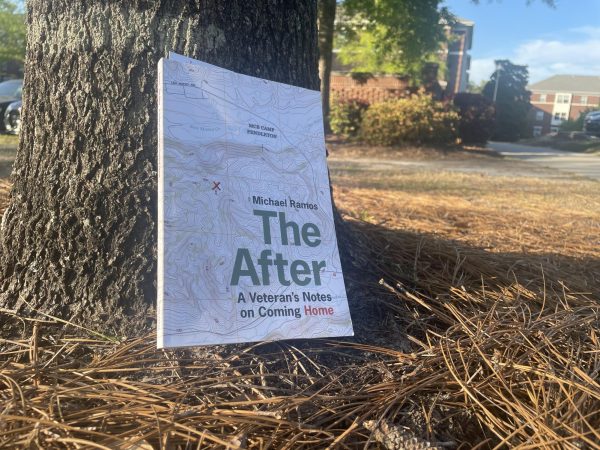Lose weight, wrap yourself.
April 14, 2016
Wrap yourself like a Christmas present and Santa will take away your extra weight: this is the common phrase regarding the new ‘body wrap’ weight loss program at many spas across the country. The popular beauty procedure has swept the nation as a quick and easy way to lose weight without dieting or exercising.
“It’s not uncommon to take someone down a dress size or two in two weeks,” said founder of Suddenly Slender, Victoria Morton in a Good Morning America interview.
Unlike dieting or exercising, body wrapping is an experience to enjoy for a short session. The spas make the spa goers as comfortable as possible, often providing mood lighting, candles and soft music. A slogan coined it a “relaxing way to lose weight.”
The therapist starts by scrubbing the customer down with mud scrub, apple scrub or something similar. The weight loss patient then has every one of his or her body parts wrapped in thin layers of plastic, with the final outcome being a loss in weight. A hot blanket is then placed on top of the customer for 30 minutes with the intention of making them sweat.
After a slow cool down, the final step is to unwrap and apply lotion for a relaxing massage. In the completion of the process, sometimes taken in hour periods, customers are promised a loss of six to 20 inches in various part of the body.
Although the weight loss treatment works for some, there are many critics of the treatment when it comes to ethics as well as safety for those participating in the process. Some doctors even say the process can cause circulatory and dehydration problems.
“It’s all pseudoscientific gobbledygook,” said Dr. Victor Herbert, a doctor at Mt. Sinai Veterans Research Center in an interview with Good Morning America.
Herbert said the dehydration method and process only temporarily reduces the recipient’s weight by water loss. The recipient may easily gain that weight back just by drinking the required water everyday.
“Be 6 to 20 inches slimmer today by dehydrating yourself? Sure,” said Herbert. “And you can also kill yourself… because you can throw somebody into what we call hypovolemic shock. That’s low blood volume shock by dehydrating you.”
Morton would argue and say body wraps also get rid of the waste that actually makes people sick. Good Morning America allowed Morton to prove her body wrap method by doing it on two of the show’s hosts. A week after the procedure both hosts were fine, and Morton claimed they lost at least three inches each. Upon closer measurement, it was concluded that neither lost any weight.
College students also take the weight loss aspect of their lives into account, since it is hard enough to avoid the freshman fifteen. When asked about body wraps as a form of weight loss, most of the students had very similar opinions.
“I think it is not a great way to lose weight, but it seems glorified by celebrities on social media,” said UNC Wilmington student Holly Staroba. “I do not know anyone that uses them. I really cannot see how they would be more effective than eating right and exercising. It does not seem like it promotes a healthy lifestyle at all.”
“I don’t think it’s a good way to lose weight. There’s no science backing it up and nothing takes the place of eating healthy and exercising,” said UNCW student Jaime Monteiro. “I think it’s more of a ‘lose weight quick spa-scam’ than anything else.”
It is a matter of opinion whether or not the body wraps actually work or are ethical. The phenomenon may pass, but for now, it’s up to the population, and even popular culture, to decide whether the procedure is more appealing than eating right and exercising.





















